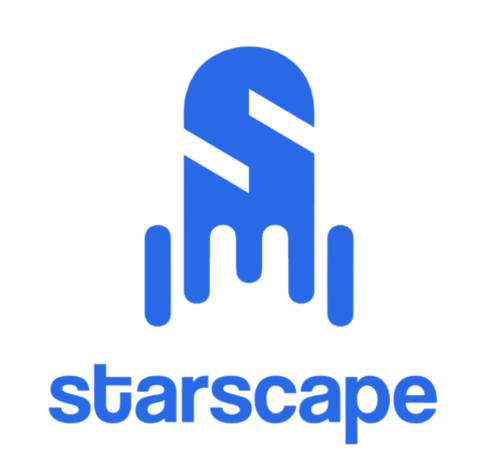Hi, Dave Fox here from Starscape SEO. Google Merchant Center is a platform designed to help online sellers manage how their products appear across Google’s services, including Google Shopping and free listings.
It’s an essential tool for e-commerce businesses looking to boost their product visibility on Google’s search results, making it easier for potential customers to find their products.
However, many merchants often encounter a status that can be both frustrating and confusing: “Pending.”
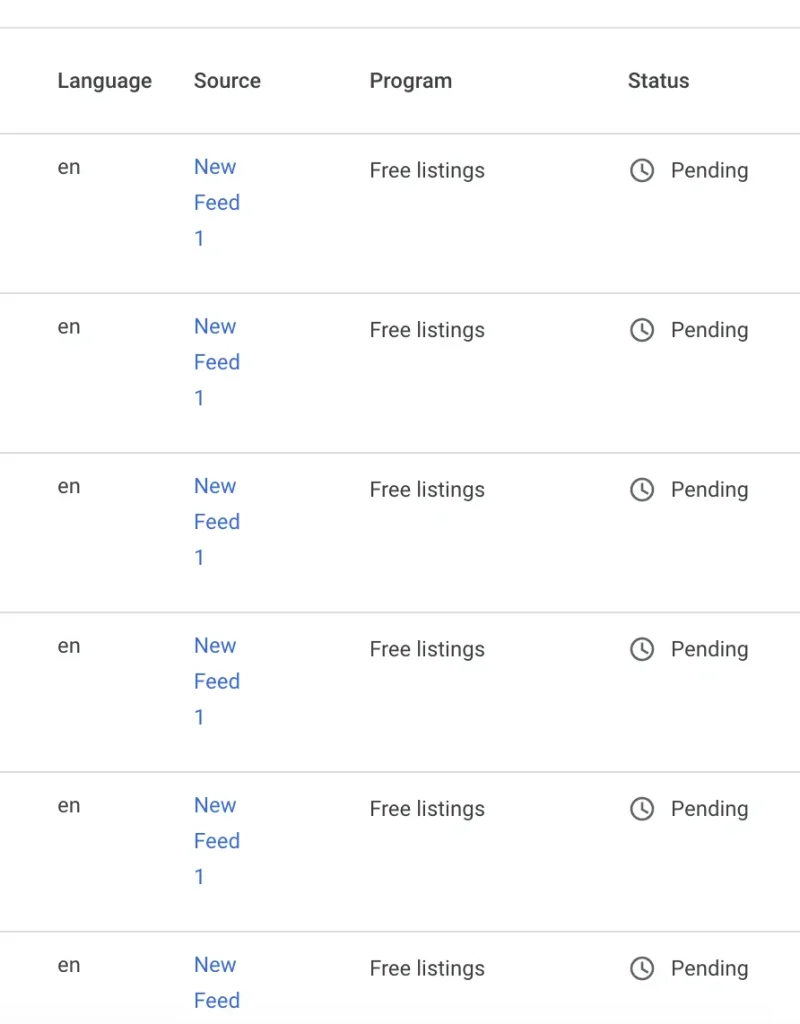
Understanding the “Pending” Status
When you add products to your Google Merchant Center account, they must go through a review process before they can be listed on Google Shopping or other Google services.
During this review, which is typically done by AI (although sometimes actual humans get involved) products are often marked as “Pending.”
This status indicates that Google is still evaluating your products to ensure they meet the required standards and policies. Sounds fair enough, but I will add that personally I think there’s little more to it than meets the eye, which I shall explain.
“Pending” vs Approved Products & SEO
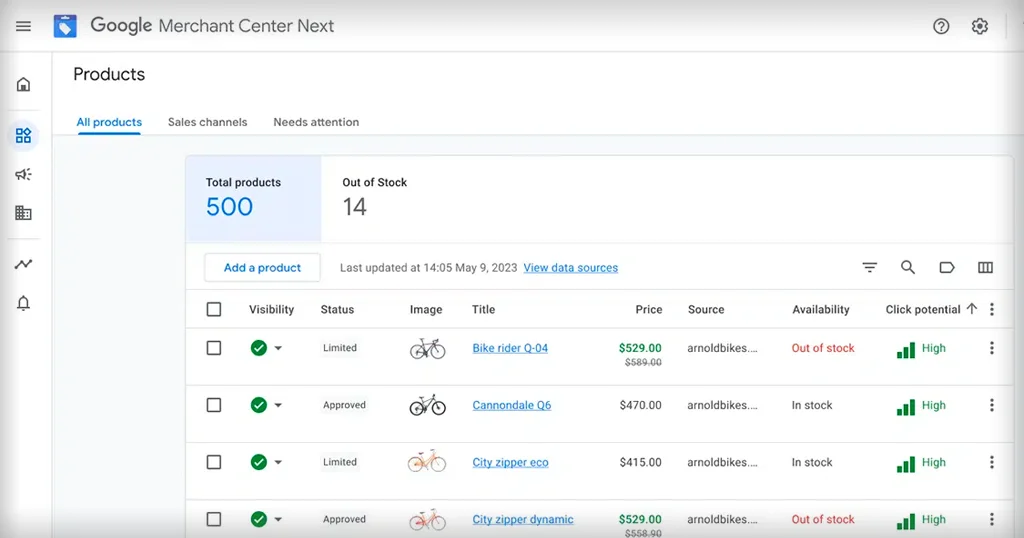
Google Merchant Center is where you can add your products to be shown to your potential customers, whether they be in your local area, or around the world.
Products that are sent through to Merchant from you, the vendor, need to be SEO’d, before you bother to upload your product feed.
Why? Your product uploads to Google, much like everything else that gains visibility online, is scrutinized silently by their robots, and there’s no guarantee they’ll be approved. Those robots are a lot like airport security at a very strict airport.
The bots’ review of your products’ data happens in seconds, or minutes, depending on how busy Google’s queue is, and according to Google’s very detailed algorithm, which can easily detect if it thinks something is wrong with your products.
Sometimes, Google earmarks your products as being “suspicious”, for one reason or another. This can lead to approval (yay!) …but with poor performance (boo!), or flat out disapproval (BOO!). This means your products won’t be shown at all in Google’s free listings, or anywhere else (BOOO!).
The performance of your products in Google, should they be approved, is a different discussion from the “Pending” phenomenon, and yet it all relates to SEO.
Products “pending” relates to SEO because the way that products are uploaded, in terms of adherence to Google’s guidelines (that most people aren’t fully aware of because they’re buried in hundreds of pages of documents), determines if they will ending up in limbo (pending) or go beyond it to approval. Once approved, it’s still a battle for visibility (ie. SEO becomes even more important at that point).
Why Products End Up in “Pending”

Several factors can lead to your products being marked as “Pending”:
Initial Review Process
Every new product uploaded to Google Merchant Center undergoes an automated review process, as we said.
This is where Google’s AI systems check your product data for compliance with Google’s policies – again – as we just said.
Get used to the authoritative tone you’re hearing now, as Google, in its arbitration of allowing you to sell on its platform, also takes a very authoritarian tone with its vendors. Check out this messaging for “misrepresentation”…
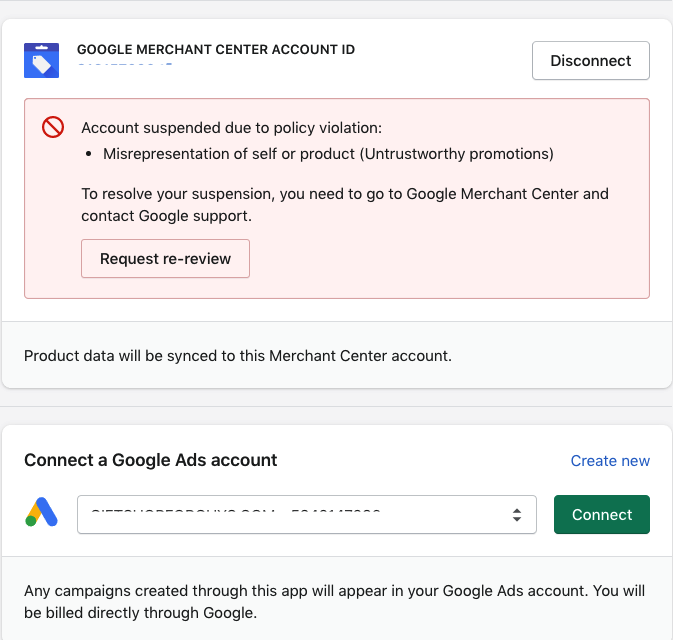
Nevermind “misrepresentation” for now. We’ll talk about it in another article, but just mind the language. Google, when it comes to the Merchant Center, speaks to people with very little bedside manner.
Now, if your product happens to pass this automated review, it moves on to the next stage, and can be listed for sale.
BUT… if there are any issues or the AI is uncertain, the product may remain in a “Pending” status until a more thorough review is conducted.
Policy Compliance Issues
Google has strict guidelines on what can and cannot be advertised.
These guidelines cover various aspects, including the accuracy of product information, appropriate images, and adherence to legal standards.
If your product data doesn’t align perfectly with these rules, it may be held in the “Pending” status until the discrepancies are resolved.
Account Issues
Sometimes, the “Pending” status is related to issues with your Merchant Center account itself.
For example, if your account isn’t eligible for enhanced free listings or there are unresolved diagnostics issues, your products might not be fully approved.
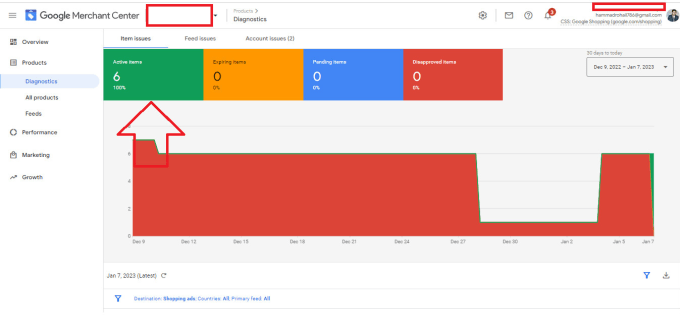
In some cases, linking errors with Google Ads or Google My Business can also contribute to this problem.
Multiple Submissions
Submitting the same product more than once, either manually or via different feeds, can trigger a “Pending” status.
Google’s policies strictly prohibit assigning different IDs (SKUs) to the same physical inventory item, as this can lead to confusion and potential policy violations.
Capacity Issues
Some merchants have reported that their accounts exceed the capacity limits for certain programs within Google Merchant Center.
For instance, if your account has too many products listed for the “Buy on Google” program, it may cause a bottleneck, leaving some products in the “Pending” status until the issue is resolved.
How Long Does “Pending” Last?

The duration for which a product remains in “Pending” status can vary widely.
Some merchants report their products being approved within 3 business days, while others mention waiting for up to a week or more.
It has been stated (by Google, at some point) that due to the high volume of submissions and the ongoing effects of the COVID-19 pandemic, Google’s review process can sometimes take longer than usual.
Some might simply suggest that Google has a staffing issue, and that there are too many merchants in need of a manual review to get out of Pending, and Google simply doesn’t have the manpower or the motivation to dredge the swamp, so to speak.
Personally, I think that in some cases, Google simply can’t afford to have certain things – un-optimized products, suspicious labels, or weird stores that lack identification and veracity – being displayed on their platform.
It could lead to lawsuits, and generally could create complications for Google, who have had their fair share of legal issues over the years.
That said, Google has no obligation to deal with the literal thousands of fake accounts, or say anything that would be bad for their brand, such as “there’s just too much fraud on here, get lost!”
They essentially don’t want to be rude, but they also may not trust the people signing up.
Still, if your products remain in “Pending” status for more than a week, it may be necessary to contact Google support for further assistance.

Now, some say that Google’s support can be rather unsupportive, as it involves tickets being escalated, and a claptrap of people sending you to articles that don’t help and being passed around like a baton until finally you just hear “someone will get back to you”.
Others will say that Google has rules and you just have to learn them or already somehow know them.
Once you do, you should be fine. The problem comes when you walk into Google Merchant unawares and think you can do ABC, when you most certainly CANNOT.
Factors Beyond Your Control

Sometimes, the “Pending” status is due to factors outside of your control:
System Delays: Google’s automated systems can experience delays, especially during peak times or due to external factors like global events. These delays might cause your products to remain in “Pending” status longer than expected.
Account-Level Issues: Issues related to your account setup, such as incomplete verifications or capacity limits, are often outside the control of individual merchants. These issues may require intervention from Google support to resolve.
Factors Within Your Control

However, there are instances where the “Pending” status may be due to actions on the merchant’s part:
Policy Violations: If your products do not comply with Google’s policies, such as incorrect product data, misleading information, or inappropriate content, they may remain in “Pending” status until corrected.
Duplicate Listings: Submitting the same product with different SKUs or through multiple feeds is against Google’s guidelines and can lead to complications, including extended “Pending” periods or even disapproval.
The Importance of Reading Support Documentation

One common theme among merchants experiencing “Pending” issues is the lack of familiarity with Google’s support documentation.
Google provides extensive resources outlining the requirements and best practices for using Merchant Center, but many sellers overlook these guides.
For instance, the Merchant Center guidelines detail the importance of unique SKUs, correct use of attributes, and proper feed setup.
By thoroughly reviewing these documents, merchants can avoid many common pitfalls that lead to “Pending” statuses.
Google and the Role of AI

It’s important to note that Google’s review process is largely automated, with AI playing a significant role in evaluating product data.
While this allows for a faster and more scalable review process, it also means that the system may flag issues that human reviewers might overlook or vice versa.
In some cases, the AI might need more time to evaluate complex data, leading to extended “Pending” periods.
Conclusion
Encountering a “Pending” status in Google Merchant Center can be frustrating, but understanding the reasons behind it can help you address the issue more effectively.
Whether it’s a matter of policy compliance, system delays, or account-level problems, taking the time to review Google’s guidelines and ensuring your product data is accurate can minimize the chances of prolonged “Pending” periods.
In situations where the issue persists, don’t hesitate to reach out to Google support for assistance.
With patience and attention to detail, you can ensure your products move from “Pending” to “Active,” making them visible to the millions of users searching on Google.

Call or Text Starscape SEO: (519) 208-8680

